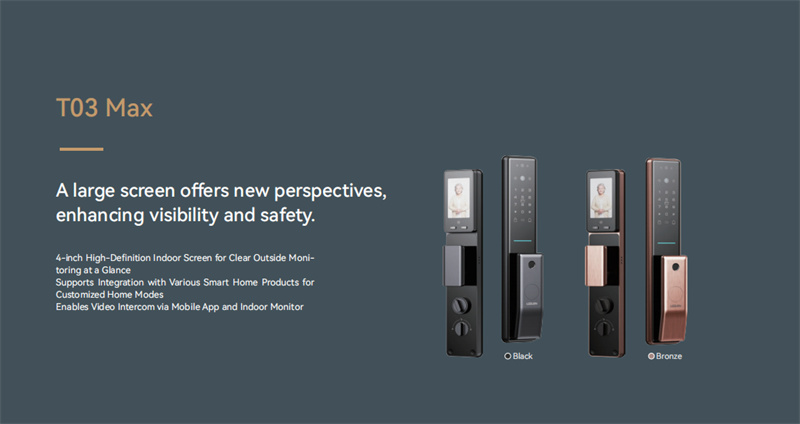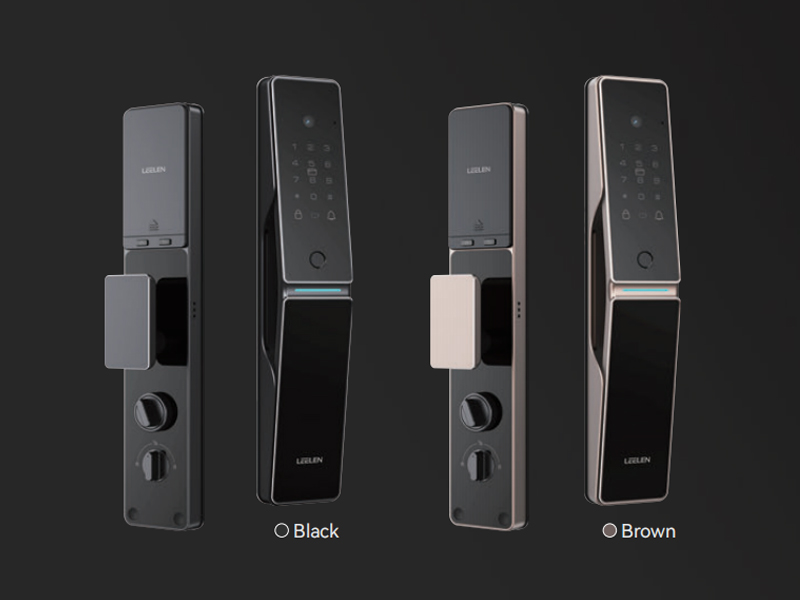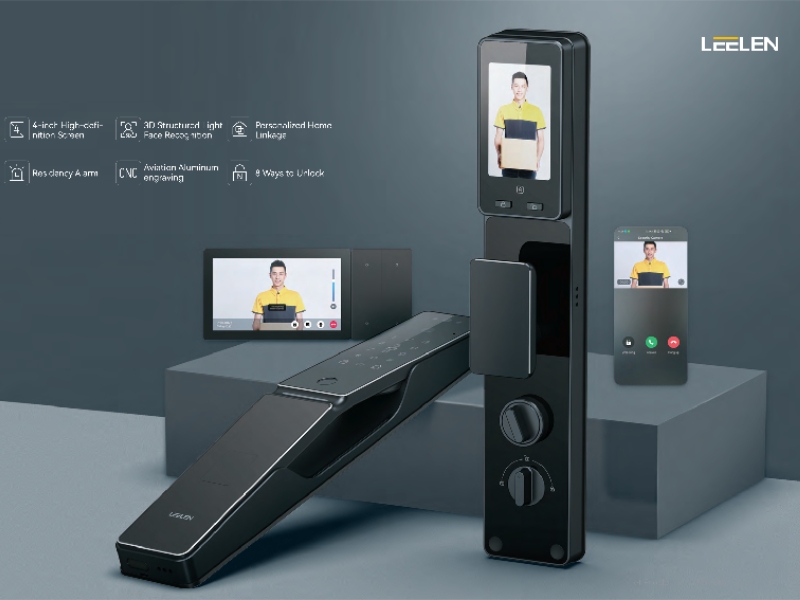Cómo elegir la mejor cerradura inteligente para tu hogar
Summary
When considering a smart lock for home, it's essential to evaluate different types, features, and installation methods to ensure you find a solution that fits both your security needs and lifestyle. Whether you're upgrading your front door or adding security to an interior space, understanding the key differences between smart lock systems will help you make a well-informed decision. This guide will walk you through various smart lock types, their benefits, and the key features to consider for optimal home protection.

Types of Smart Locks: Which One Fits Your Home?
When selecting a smart lock, one of the most significant decisions you'll face is the type of lock mechanism that suits your entryway. Below, we break down the primary options to help guide your choice.
Deadbolt Replacements vs. Deadbolt Adapters
The majority of smart locks for home are designed as replacements for your current deadbolt. These locks require you to remove your existing deadbolt entirely and install the smart lock in its place. While this might take more time and effort during installation, it often results in a lock that offers additional features, such as keypads or biometric entry methods built directly into the lock.
Alternatively, deadbolt adapters—such as the August smart lock—are easier to install. These adapters only require you to replace the internal components of your existing deadbolt, leaving the external appearance and your old keys intact. However, if you wish to add features like a keypad or biometric scanning, you may need to purchase additional accessories.
| Type | Installation | Features | Pros | Cons |
|---|---|---|---|---|
| Deadbolt Replacement | More complex, requires full removal | Keypad, fingerprint reader, keyless entry | More features, modern design | Longer installation time |
| Deadbolt Adapter | Easier, replaces only internal parts | Keypad, app control, virtual keys | Retain existing keys, simple install | Less feature integration |
Lever Locks: When to Use Them
While lever locks are becoming more popular, they are best suited for interior doors such as those between your garage and home. They are not typically recommended for external doors due to security concerns. However, they are a great option for interior access points where ease of use and convenience are priorities.
Key Features to Consider in a Smart Lock
Smart locks offer various entry options, from traditional keys to advanced biometric and digital systems. Let's explore some of the most popular features you might want in your new smart lock.
Keypad Entry
One of the most common and convenient features of smart locks for home is the keypad. A keypad allows you to input a unique code to unlock your door, eliminating the need for traditional keys. Many smart locks enable you to create multiple codes for family members, housemates, or service providers. This feature adds a layer of flexibility, as you can change codes as needed without needing to re-key the entire lock.
Biometric and Keyless Entry
If you prefer not to remember codes or carry a key, look for a lock with biometric or keyless entry features. Many smart locks now include fingerprint readers, which provide a quick and secure method to access your home. Some locks also integrate with NFC cards or mobile devices, allowing you to unlock the door with a simple tap. If you already use a smartphone for other home automation, this can be a seamless addition to your daily routine.
Virtual Keys
For enhanced flexibility, virtual keys allow you to send unique access codes to anyone who needs to enter your home. This feature can be especially useful for managing access for visitors or contractors. Virtual keys can be time-limited or used on a one-time basis, ensuring that you have full control over who enters your home and when.
Connectivity: How Smart Locks Communicate with Your Home
To control your smart lock remotely or automate its functions, it must connect to your home network. Most smart locks use one of the following connectivity methods:
Zigbee, Z-Wave, and Bluetooth: These require a hub to function properly and allow you to monitor and control your lock remotely.
Wi-Fi: A growing number of smart locks come with built-in Wi-Fi, making it easier to connect directly to your home network. However, these models often require more frequent battery changes due to their increased power consumption.
Ensure that the smart lock you choose is compatible with your existing home automation system. Popular hubs like Amazon Echo, Apple HomePod, or Google Nest can streamline the integration process, allowing you to manage your lock alongside other smart devices in your home.
Advanced Features for Seamless Smart Home Integration
The best smart locks are compatible with popular smart home assistants, such as Alexa, Google Assistant, and Apple HomeKit. Integration with these platforms allows you to automate your lock’s functions and tie it into other home automation routines. For example, you can set your lock to engage automatically when you leave the house or unlock it when you arrive, all through voice commands or scheduled routines.
Security Standards: Ensuring Quality and Durability
To ensure you're investing in a reliable, secure smart lock, check for ANSI/BHMA certification. This certification guarantees that the lock has undergone rigorous testing for durability, strength, and resistance to forced entry. When selecting a smart lock, prioritize those with a Grade 1 or Grade 2 rating to ensure the highest level of security for your home.
Conclusion: Finding the Best Smart Lock for Your Home
Selecting the right smart lock for home depends on your specific needs and preferences. Whether you prioritize convenience, security, or integration with your smart home system, there’s a smart lock solution that fits your lifestyle. From advanced keyless entry systems to remote monitoring and control, these locks offer a combination of flexibility and security that traditional locks simply can’t match.
When shopping for your next smart lock, keep in mind factors like installation ease, connectivity options, and compatibility with your existing devices. By considering these elements, you'll find a smart lock that enhances the security and convenience of your home, without the hassle of traditional keys.


